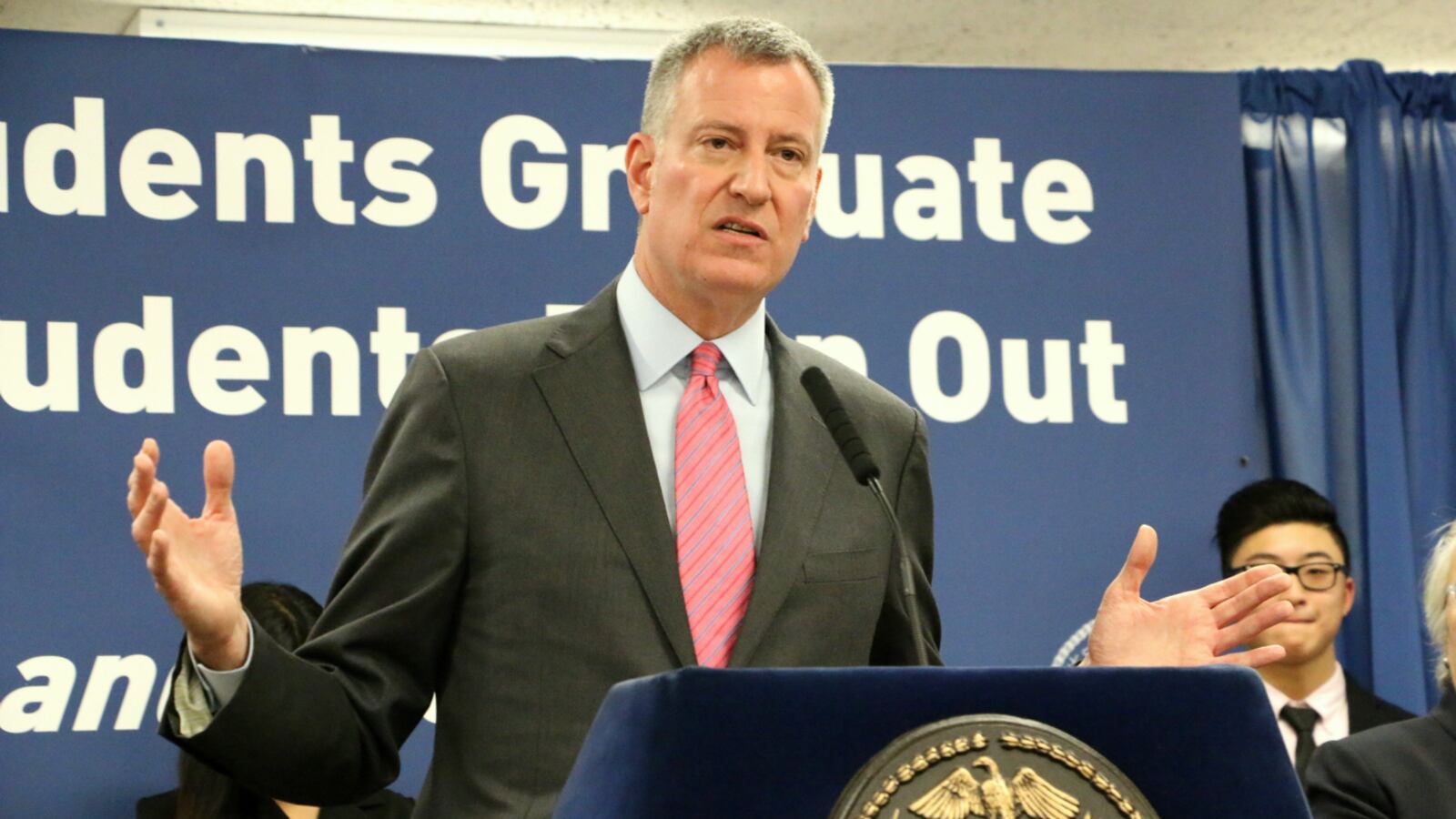After fierce pushback from some members of the Asian-American community, Mayor Bill de Blasio said Thursday that he wished he had done a better job persuading people to support his plan to integrate the city’s specialized high schools.
“When we rolled out the vision on specialized high schools it was by no means trying to create a negative or divisive situation,” he told reporters. “At the same time I have to say, I wish I had done it better.” De Blasio said he would meet with Asian community leaders “soon.”
The mayor’s comments came hours after City Council Speaker Corey Johnson announced his own proposal in an op-ed in Chalkbeat on specialized schools, which includes a proposed set of hearings and task forces to give more communities “a seat at the table.”
Asian-American students dominate admissions to eight city high schools that determine admission based on a single test. This year’s offers to specialized schools showed that about 51 percent of offers went to Asian students, 29 percent went to white students, and under 11 percent of offers went to black and Hispanic students combined.
Some members of the Asian-American community have resisted the mayor’s plan, arguing that scrapping the admissions test will reduce the number of Asian students — many of whom come from low-income families. A group of Asian parents, backed by the Pacific Legal Foundation, have also filed a lawsuit over the mayor’s plan, though others in the Asian-American community have denounced those efforts.
At a separate press conference Thursday, Johnson said that while he supports eliminating the single admissions test, there should be more community conversations about how to integrate city schools before moving forward — a clear nod to Asian-Americans who have criticized the mayor’s plan.
At the same time, Johnson called for the creation of more seats at a new set of “elite” schools “so you wouldn’t be harming any individual community.” The idea, he said, is to make sure there are desirable seats for everyone. (De Blasio said Thursday he is open to adding more seats at the current specialized schools but seemed reluctant to open new “elite” schools.)
But Johnson said most of the details about how to overhaul specialized high school admissions — and about the new “elite” programs — would be left to various task forces to iron out.
Some critics argue that creating more screened schools could exacerbate the segregation the plan seeks to address, as the city’s selective schools are generally less representative of the city’s students. They also worry it will simply stall the mayor’s proposal, which is backed by research and would boost access for black and Hispanic students by guaranteeing admission to the top 7 percent of students at every middle school.
Expanding schools that replicate structural inequality to include a few more students does nothing to address structural inequality. This plan does nothing abt admission standards for the elite schls but adds 2nd tier of less elite schls while maintaining inequality 4 most studs. https://t.co/mJIFBtzAEH — Ida Bae Wells (@nhannahjones) March 29, 2019
Asked about why Johnson wants to expand elements of the system that are exclusionary — including screened schools and gifted programs that generally enroll fewer black and Hispanic students — he largely sidestepped the question, saying virtually every element of school admissions should be up for debate.
“To have this conversation, you have to talk about all high school students, all middle school students, all elementary school students. You have to talk about the pipeline, you have to talk about poverty, you have to talk about all these things,” he said. “It’s not a sound bite answer.”

